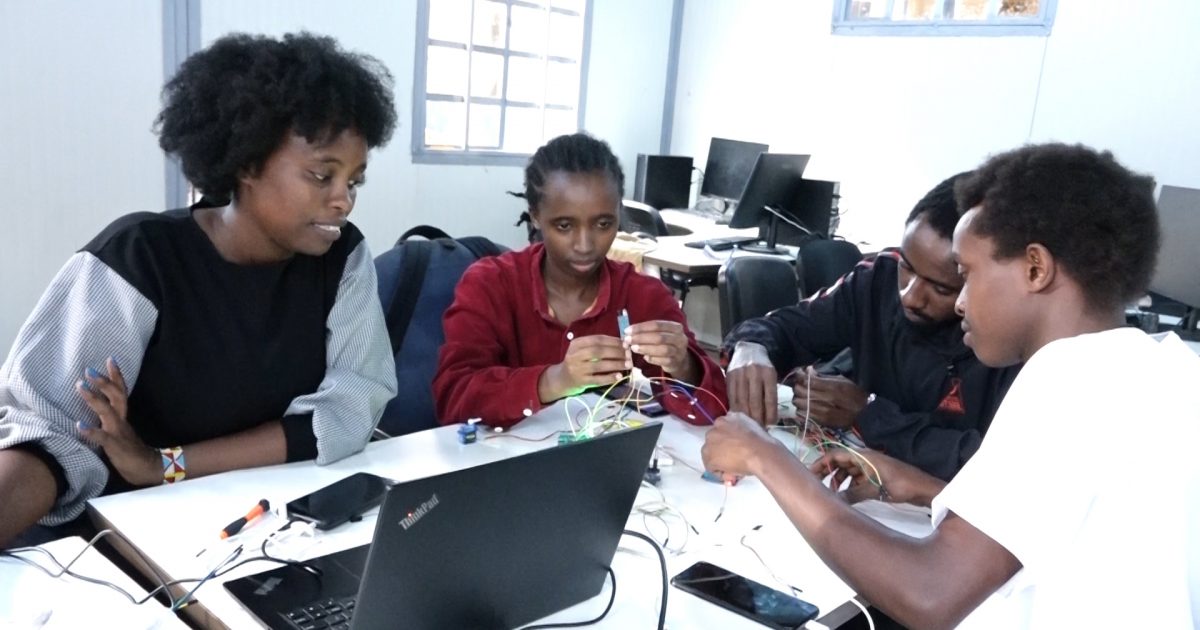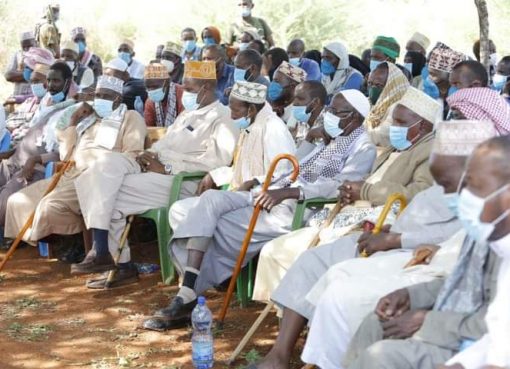Seventy female university students from Nakuru are benefiting from a Sh10 million World Bank scholarship program that is geared towards equipping them with technical skills to promote digital innovations.
The World Bank scholarship program is being funded through the Ministry of Trade and Investment’s Kenya Industry and Entrepreneurship Project – Strengthening Kenyan Innovation Ecosystem (KIEP-SKIES) which aims to build the capacity of young incubators and Technology boot camp providers as well as subsidizing tuition costs for female students to ensure rapid technological advancement in Africa.
According to Rift Valley Institute of Business Studies (RVIBS) Head of ICT Mr Patrick Mwai, the scholarship program targets students pursuing science, technology, engineering and mathematics (STEM) subjects who are being empowered to innovate and enjoy hands-on approach to teaching and learning.
Mwai said the program has established a special classroom space at the Rift Valley Institute of Business Studies (RVIBS) which is fitted with equipment that enable the students drawn from both public and private universities to carry out activities such as coding, 3D printing, laser cutting, soldering, electronics, robot building or robotics.
He said the 70 female students are being equipped with other skills including digital marketing, cyber security and web design among others.
The ICT head further explained that the special classroom was using robots and computers to teach STEM lessons where they integrate the lessons with Information Communication Technology (ICT).
The learners, he added, are also being enabled to carry out creative coding, physical computing and incubation of viable STEM ideas in addition to the students being enabled to share resources and knowledge, work on projects and network.
“This is a space targeted for female students with a maker mindset where they can come together and create something out of nothing and explore their own interests,” stated the Head of ICT.
Tutors at the special classroom says the teaching module has not only made learning easy but also full of fun where the robots are assembled using tiny pieces of plastic consisting of either studs or holes and other standardized components to fit into each other to form one functional unit.
Mwai said the use of robots makes young learners work in logical and effective ways that foster scientific reasoning and critical thinking which may not be guaranteed in theoretical learning.
He indicated that the learners also engage in ‘robotic challenge’ which entails assembling and programming which requires a lot of creativity and learning.
As Kenya rushes to establish its own version of the Silicon Valley and Industrial parks, Mwai said there was need to develop the right manpower to drive the vision including the youthful innovators.
For younger learners the special classroom is using VEX 123, which is an interactive and programmable robot which Mr Mwai says is easy to use for beginners while still offering a greater challenge for those that need it. The simplest programming is done by inputting sequences via the buttons on the robot itself.
Centre for Mathematics, Science and Technology Education in Africa’s (CEMASTEA’s) National Trainer in charge of Coding Mr Martin Mungai said that coding was a critical skill that can enable every household to actively participate in the digital economy and participate in creating virtual jobs.
According to Mr Mungai, mastery of coding will help learners to think differently, be more creative, grasp mathematics easily and be collaborative. He added that it will accord them valuable life skills and prepare them for work.
He pointed out that promoting coding in schools exposes young learners to technology and creates a path to a new world of innovation and creativity.
“Coding is really key in the CBC curriculum and in the world, we live in today. We are now looking at virtual reality, machine learning and even artificial intelligence. The world is moving away from computers to automation, engineering and robotics. People want to automate systems without having to be there,” he clarified.
One of the scholarship program beneficiaries, 19-year-old Ivy Barasa said she not only has enhanced her understanding in learning but has also acquired other skills such as communication skills, team work, tolerance and time management
She indicated that she has now learnt that computers are not simply machines, but a gateway to innovation, problem-solving, critical thinking and collaboration.
She says that robotics and coding at the special classroom has made science interesting to learners by engaging them in activities that invoke fun and are not necessarily examinable adding that coding was key in the Competency Based Curriculum (CBC) and in the contemporary world, as people are now looking at Virtual Reality (VR), Machine Learning (ML) and Artificial Intelligence (AI).
“The world is moving away from computers to automation, engineering and robotics. People want to automate systems without having to be there,” adds Ms Baeasa.
According to Barasa, Kenya needs innovations and this can only be realized through creativity and critical thinking as opposed to obsession with academic grades that rarely lead to tangible achievements.
She was however happy that Robotics was now helping in the health, agriculture and even production sector.
The Kenya Institute of Curriculum Development approved coding as a critical skill within the new Competency-Based Curriculum.
By Esther Mwangi



